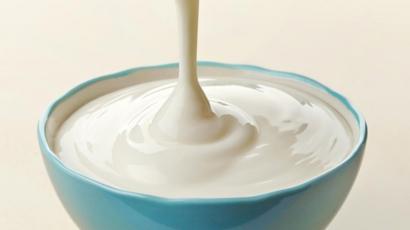5 Foods That Don’t Get The Credit They Deserve

When it comes to food, we very definitely live in a “Marmite Culture”. You have those foods that are passionately adored by supposed ‘Health Gurus’ (dinosaur kale, protein shakes etc.); and those that are emphatically condemned as the sole cause of global economic obesity (maybe a slight exaggeration...).
Either way, we have evolved into a society that either loves it or hates it.
This is largely due to the immense hyperbole perpetuated by the media; after all, it makes for a more eye-catching article when you use a headline like:
“DON’T EAT [INSERT FOOD HERE] ; NEW STUDY DISCOVERS DOING SO INCREASES RISK OF DEVELOPING CANCER”
Unfortunately, the studies in question almost always have a catch, or are absolutely riddled with inaccuracies. The lack of scientific legitimacy usually fails to come through in the article, though; and thus people fall into the trap of false belief about certain foods.
I have therefore written an article of my own in order to reinstate some of the healthiest foods on the planet that are commonly misrepresented and falsely accused of causing disease and obesity...
Whole Eggs
This first one is very close to my heart, and I tend to take it personally when I hear someone dissing my beloved egg...

Recently, whole eggs have been largely criticised for contributing to diseases such as liver cancer due their high cholesterol content (~186mg per medium-sized egg). One particularly heinous article states that one egg is “as bad as 5 cigarettes”...
People see the word ‘cholesterol’ and instantly conjure up negative images in their mind’s eye, when in reality it is an essential component to our body’s functioning. From forming the basis of cell membranes, to playing a key role in hormone production, cholesterol is highly misunderstood.

Eggs, in my humble opinion, are one of the most healthy and versatile foods going. There are countless of awesome recipes for any time of day kicking about the Internet, and when hard boiled, they can serve as a satisfying, protein-rich snack.
And, as if you didn’t need any more convincing, the health benefits of eggs are insane. Check out this infographic for more info
For me at least, eggs are one of my morning staples; fuelling my body with a big ol’ dose of lean protein and healthy fat for the day’s training.
Bread
You have probably heard people proclaim that a humble loaf of hearty brown is the source of all the world’s evils.
The growing popularity of low-carb diets such as Keto and the Atkins’ diet has given rise to a widespread opinion that foods rich in carbohydrates, like bread and rice, are the sole cause of unwanted weight gain and obesity.
Putting every type of bread under the same umbrella of hatred is ridiculous; yes, heavily processed white bread is a high GI food, and yes it can potentially cause weight gain. But the latter can be said about pretty much any food eaten in high volumes.
Furthermore, certain types of bread, such as wholewheat or Ezekiel, often boast a high fibre content that will keep your gut working like clockwork, as well as keeping you satisfied following a meal. And considering the average fibre intake of adults in the UK is roughly 60% of what it should be, having a slice or two of hearty wholemeal may be a worthy ally in your fight for fat loss!

Pair this with the fact that wholegrain bread (as well as many white breads) is usually fortified with tonnes of vitamins and minerals, and hopefully you can see how bread can play a part in a healthy diet.
Why not go two’s up with the first food and smash out a protein-packed breakfast of scrambled eggs on a ‘cutla slices of wholegrain toast? Bangin’
Full-Fat Yoghurt
Fat often gets a bad wrap because of its name and the resulting image in one’s mind of a big bloke sporting an impressive beer-belly...

Luckily, the rise of the Keto-Warrior has resulted in fats getting a slightly better reputation; healthy fats are now considered a staple in the world of health.
Yet even so, there seems to be something about full-fat yoghurt that means, on man people’s eyes, it remains on the nutritional naughty step. This is largely due to its high saturated fat content; the type of fats that we are told to limit in order to optimise health.
See Related : Why Whole-Fat Milk and Yogurt Are Healthier Than You Think
However, a 2016 study of approximatey 18,000 women showed that those who consumed the most high-fat dairy products reduced their risk of being overweight or obese by 8%.
Full-fat yoghurt tastes rich and creamy by itself, without the need to put copious amounts of added sugar into the equation. Many low-fat or 0%-fat yoghurt brands compensate the lack of fat by loading their products with sugar in order to make it tasty. Unfortunately, this may prove counterproductive if your goal is to lose fat.
One of the fatty acids in whole-milk products has also been associated with lower risk of cardiovascular disease and strokes!
Next time you reach for the ludicrously sweet 0%-fat yoghurt, maybe consider the full-fat option. You could be doing yourself a big favour...
Bananas
Yes, you heard me: what was once considered the “poster boy” of a healthy diet has since been battered due to its high sugar and carb content.

No one can argue with the plain fact that yes, ‘nanas are indeed a rich source of carbs, with one medium containing 27g, 14g of which are sugars. People dissing the Mellow Yellow will usually equate this to the 14g of sugar found in 1oz of dark chocolate, and thus conclude that “bananas are as bad for you as chocolate”.
See Related: The Great Carb Conundrum
This argument is flawed in so many different levels, failing to consider the 3g of fibre that comes with a ‘nana. Fibre slows the rate of absorption into our bloodstream, meaning that energy levels will stay elevated for a longer period of time.
If you’ve ever wondered why the world’s greatest endurance athletes have bananas as a staple, you now know why! Take one of my heroes, Ross Edgley, who’s 157-day swim around mainland Britain involved the consumption of 659 bananas...
What’s more; all the sugar in a banana is natural (in the form of fructose), as opposed to the added sugars that are the big issue with many western diets.

And to top it all off? ‘Nanas are stuffed full of micronutrients to help keep your body working like a well-oiled machine!
Don’t take my word: take it from an absolute machine who has completed some of the most outrageous feats of human physical endeavour in history:
Bananas have been the real hero of the Great British Swim...as one of the most efficient fuel sources available
Ross Edgely, circa 2018
Lean Beef
One word: Gamechangers
Two words: Bull Sh*t (or maybe one word, who knows...)
Bet you didn’t expect that coming from a vegetarian, aye?
For years now, red meat consumption has been one of the most controversial and comprehensively studied topic in the field of nutrition.
See Related : Changing The Game : The Rise of Netflix’s Most Controversial film ever…
Owing to a few studies that linked red meat consumption with "increased incidences of heart disease, colorectal cancer and type 2 diabetes", the early-2000's saw a growing number of people adopting plant-based diets. The vegan and vegetarian movements have since continued to rise, to a point we found ourselves now where many households in the UK have shunned red meat full-stop.

Many of the studies linking red meat consumption to risk factors for disease also identified a marked difference in the quality of meat eaten by different subjects. What the media tends to by-pass is that it was highly processed cuts of meat that usually produced the headline conclusions. Higher quality, organic cuts have been associated with significant pros that may outweigh the cons.
What’s more, a high quality, grass-fed piece of steak is an unadulterated nutritional powerhouse. Packed with 62g of protein, few whole foods on the planet come close to the protein content and quality within an 8oz steak. Pair this with its high iron and b-vitamins content, and you have a food that deserves a rightful spot in the proverbial Hall of Health...
**CAUTION : as with any food, moderation is key. One thing that most of the literature tends to agree on is the increased risk of disease associated with daily consumption of red meat. To reap the full benefits of high quality beef, limit your consumption to 1-3 x per week for optimal results.
On that note... Moderation!
Now, hopefully I have convinced you that all 5 of these commonly demonised foods can be part of a healthy diet; indeed, they have the potential to boost your nutrition game and performance in the gym.
HOWEVER, it needs to be said that each one respectively should be enjoyed in moderation. Just because a food has numerous health benefits does not mean it can be eaten as much as you like, as this may put you into a significant calorie surplus.
Read the labels, check whats going in the tank, and watch out for those portion sizes!
The Final Word
'Wellness Gurus' on the internet tend to produce a wealth of helpful, insightful content with regards to nutrition, and I myself continue to learn more about fuel for performance through reading the content from talented and knowledgeable individuals online.
However, some of the things you read online are incredibly misleading, and may cause you to cut something out of your diet that may pose significant benefits for you, your performance, and your fitness goals.
Hopefully, I have been able to put a few misconceptions to bed; and I am keeping everything crossed that, if there is one thing you get out of this article, it's to keep the yolk and smash a naughty plate of scrambled egg on toast...
Do YOU need help with your individual nutrition?
Need some Accountability for YOUR diet?
THEN GET IN TOUCH & JOIN THE TRIBE!!
Don't Hesitate to contact me at gripperpt@gmail.com, or via mobile at 07399 616 822
:max_bytes(150000):strip_icc()/ezekiel-bread_annotated-9f192318c44b4f80b46165d673571a87.jpg)